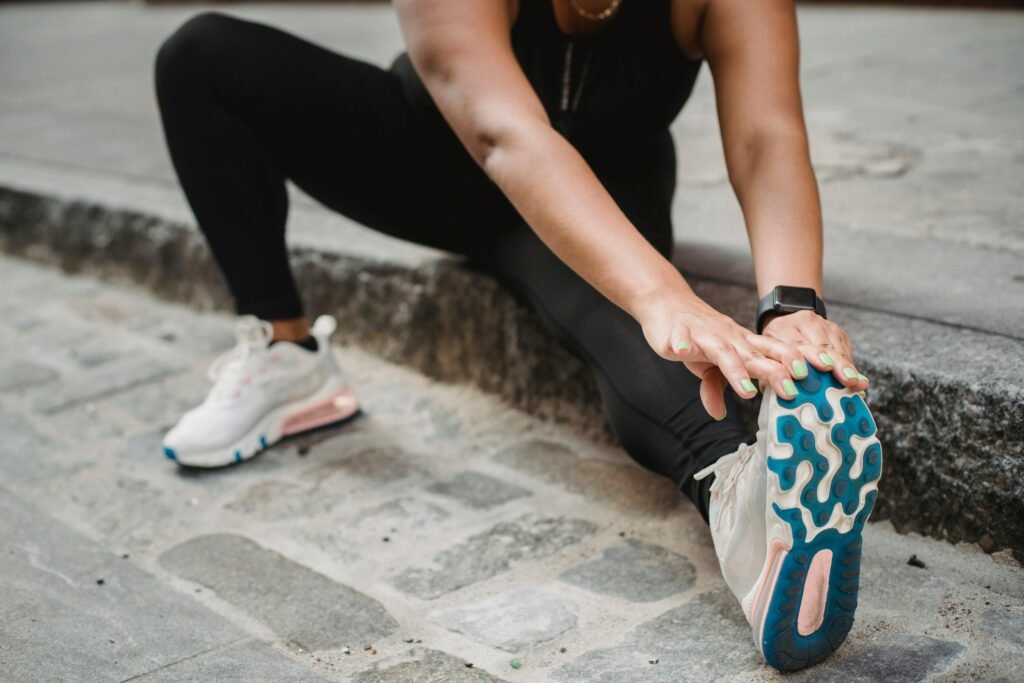
Move Every Day: How Daily Exercise Improves Your Body and Mind
In a world where our lives are increasingly sedentary—marked by desk jobs, long commutes, and screen-heavy leisure activities—daily movement has become more essential than ever. Exercise is more than just losing pounds or building muscle. It’s a very useful tool for holistic health, which has great effects not only on the physical body but also the mind.
If you want to know how making movement a daily habit really can change your life from the inside out:
How to Make Movement a Daily Habit
Creating a daily exercise routine doesn’t require a gym membership or hours of dedication. What matters is consistency and intention. Here are some tips to help:
- Start small: First 10–15 minutes of moderate brisk walking, stretching, or light yoga.
- Schedule it: Make exercising one of those things you can’t give up, like brushing your teeth.
- Make it fun: Move around—dance, bike, hike, play with your kids—whatever makes you happy.
- Mix it up: Alternate between cardio, strength, flexibility, and rest to avoid boredom and burnout.
- Track your progress: Keep a journal or fitness app that shows your progress and milestones.
- Cardiovascular Health: Strengthening the Engine of Your Body
One of the most well-documented benefits of regular exercise is its positive effect on the heart and blood vessels. Physical activity strengthens the heart muscle, improves circulation, and lowers blood pressure.
A study published in Circulation shows a significantly reduced risk of heart disease, stroke, and hypertension among people who exercise regularly.
Daily movement also helps regulate cholesterol levels, reducing harmful LDL cholesterol and increasing beneficial HDL cholesterol.
- Metabolic Benefits: Better Weight and Blood Sugar Control
Exercise is critical in maintaining healthy metabolism. It increases the body’s ability to regulate insulin and glucose levels, which is essential for preventing type 2 diabetes.
According to the American Diabetes Association, regular physical activity improves insulin sensitivity and lowers blood sugar levels, decreasing the risk of developing diabetes by as much as 58% in at-risk individuals.
Additionally, exercise increases the resting metabolic rate, helping your body burn calories more efficiently—even when you’re at rest.
- Musculoskeletal Health: Building Strength and Flexibility
Daily movement, especially strength training and stretching, strengthens your muscles, bones, and joints. That becomes increasingly important with age, as bone density and muscle mass naturally decline.
A study in the Journal of Bone and Mineral Research shows that regular weight-bearing exercises help increase bone mineral density and reduce osteoporosis and fracture risk in older adults.
Incorporating activities like yoga, Pilates, or resistance training can also improve flexibility, balance, and posture.
- Mental Health: Reducing Anxiety, Depression, and Stress
Perhaps one of the most powerful yet underappreciated benefits of daily exercise is its impact on mental well-being. Physical activity triggers the release of endorphins—chemicals in the brain that act as natural mood elevators.
A 2020 meta-analysis published in The Lancet Psychiatry found that people who exercise regularly have 43% fewer poor mental health days compared to those who don’t.
Daily movement also helps reduce cortisol, the stress hormone, and increases levels of serotonin and dopamine—neurotransmitters associated with happiness, focus, and calmness.
- Brain Health: Sharpening Focus and Memory
Exercise doesn’t just benefit the body—it’s also a brain booster. Movement improves blood flow to the brain, which enhances cognitive functions like memory, focus, and problem-solving.
Research published in PNAS (Proceedings of the National Academy of Sciences) shows that aerobic exercise increases the size of the hippocampus, a part of the brain that controls sleep, learning, and memory.
Even short walks or 10-minute movement breaks can improve productivity and attention span, especially in work-from-home or screen-heavy environments.
- Sleep Quality: Natural Restorative Power
Struggling with sleep? Exercise is probably your best friend. It enables you to sleep better and longer by reducing anxiety and helping regulate the body’s circadian rhythms.
A study from the Sleep Foundation shows that more than 30 minutes of moderate aerobic exercise on most days helps people sleep better and feel more rested the next day.
However, it’s best to avoid intense exercise right before bed, since it can temporarily increase adrenaline and heart rate.
- Immune System Support: Fewer Colds and Illnesses
Moderate daily exercise strengthens your immune defenses. Movement helps circulate white blood cells and antibodies, which help the body, detect and fight infection more effectively.
A 2019 study from Frontiers in Immunology noted that moderate, consistent exercise reduces inflammation and acts on the immune response; that means less chance of chronic illness.
However, excessive or overly intense exercise with no recovery will weaken your immune system—balance is key.
- Longevity and Quality of Life
Simply put, people who move more live longer—and live better.
According to a Harvard University study, 15 minutes of moderate exercise every day can extend life expectancy by up to 3 years.
Beyond adding years to your life, daily exercise enhances mobility, independence, and vitality as you age, making your later years more enjoyable and active.
Final Thoughts (With Scientific Backing)
Moving your body every day is not just a lifestyle choice—it’s a powerful commitment to your long-term health and happiness. The science is clear and increasingly compelling:
- Long-term effects published in The American Journal of Preventive Medicine (2016) showed that people who walked briskly for 30 minutes a day had a 20–30% lower risk of premature death from all causes.
- Harvard Medical School research has shown that regular moderate-intensity exercise reduces the risk of cardiovascular diseases by 35%, stroke by 20%, and diabetes by 30%, significantly improving emotional well-being.
- According to The Journal of Clinical Psychiatry, consistent aerobic activity significantly decreases symptoms of mild to moderate depression—sometimes as effectively as antidepressant medication—by influencing neurochemicals like serotonin and dopamine.
- A study published in NeuroImage (2019) showed a measurable increase in gray matter volume in the prefrontal cortex and hippocampus during daily aerobic exercise—areas critical for memory, decision-making, and learning.
- The Centers for Disease Control and Prevention (CDC) confirms that adults engaging in regular physical activity have fewer sick days, better immune responses, and improved vaccine effectiveness.
So whether it’s a walk around the block, a short yoga flow, or a full workout session, moving your body each day is one of the most scientifically proven ways to extend your lifespan and increase your daily quality of life.
Take the first step today. Your body, your mind, and your future self will thank you.
